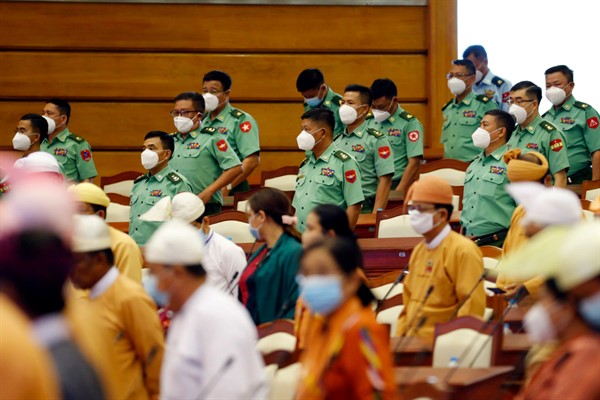In the early weeks of 2020, the signs pointed to progress in Myanmar’s convoluted effort to finally end 70 years of ethnic strife in its border areas. On Jan. 8, representatives from the government and the 10 ethnic armies that are party to a 2015 cease-fire deal convened in the capital, Naypyidaw, where they reached an eight-point agreement on the next steps to continue implementing that cease-fire. They also vowed to meet for a fourth national peace conference by the end of April, to build on three earlier summits held between 2016 and 2018.
That fourth summit would have signaled the timely revitalization of Myanmar’s troubled peace process, which Aung San Suu Kyi, the country’s de facto leader, has dubbed the “21st Century Panglong,” after the agreement that her father, independence hero Aung San, signed with representatives of several ethnic groups in 1947. Making progress in the peace talks after several recent setbacks would have provided a boost to Aung San Suu Kyi and her party, the National League for Democracy, as they prepare for a general election later this year.
But plans for the peace conference now threaten to be derailed by the coronavirus pandemic. Myanmar confirmed its first cases of COVID-19 on March 23, prompting the government and ethnic armed groups to postpone all meetings and push the summit back to July.

